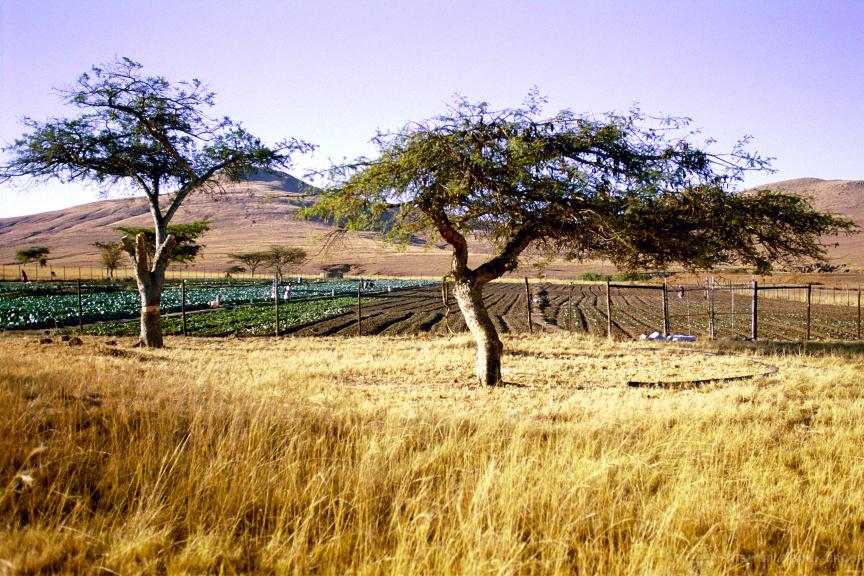2 Million African Farmers Insured For Weather & Catastrophe Risks: Swiss Re

One of the world’s largest reinsurance firms, Swiss Re, recently announced that two million African smallholder farmers are now protected against drought, floods and other natural perils, thanks to the efforts of the World Bank and Swiss Re Corporate Solutions.
Back in 2012, Michel Lies, Swiss Re’s Chief Executive Officer (CEO) made a commitment that by 2017 it would protect 1.4 million African smallholder farmers from weather and catastrophe risks, through increased insurance protection.
And now the Switzerland-based reinsurer has revealed that not only has the amount of farmers covered surpassed expectations by roughly 43%, it has done so roughly two years ahead of schedule.
Part of the company’s published statement on the matter said; “Covering more than initially planned at an earlier point in time than anticipated shows what can happen if governments, NGOs and the private sector partner in shaping the future.”
Due to various factors, including a lack of insurance and disaster resilience education for locals in Africa, and poverty, insurance penetration in most African regions has historically been low, while the nation’s vulnerability to extreme droughts and flooding has only intensified over the years.
This brings potentially devastating consequences, as thousands of natives rely either solely, or substantially on their ability to harvest in order to survive and protect their livelihoods.
If the impact of a natural disaster destroys a farmer’s crop, they have little option but to leave their land in search of another, or spend years trying to get back to where they were financially before the event occurred.
“Insurance can help to keep farmers in business and contribute to a more resilient society,” explains Swiss Re.
The African Risk Capacity (ARC), Turkish Catastrophe Insurance Pool (TCIP), Florida Hurricane Catastrophe Fund (FHCF), Pacific Catastrophe Risk Insurance Pilot (PCRIP) and the Kilimo Salama programme (now ACRE), are all good examples of how an insurance protection scheme can successfully secure the financial and economic capabilities of a region, nation or individual.
The latter of these programmes, ACRE, which Artemis discussed in December last year, launched by the World Bank’s Global Index Insurance Facility (GIIF) and supported by Swiss Re Corporate Solutions, is an example provided by Swiss Re of just how beneficial and potentially life saving insurance can be for farmers in less developed regions of the globe.
Following a crippling drought that affected many Kenyan and Rwanda farmers in late 2013, the ACRE programme protected roughly 185,000 farmers in the areas, resulting in a total payout of $160,000.
At the time, local farmer Mary Wanjiku Ihugo praised the scheme, saying; “I am proud to contribute to supplying Kenya’s farmers with quality maize seed. However, this season I lost much of my crop to drought. The payout has been extremely helpful.”
Looking to the future Swiss Re discusses the position of farmers in an increasingly urbanized world; “Agriculture in the emerging markets therefore must make a transition from subsistence, which feeds just the farmers themselves, to commercial farming.”
But for this to happen a new way of thinking must be adopted by farmers, governments and NGOs, explains Swiss Re.
A point emphasised by Shadrek Mapfumo from the International Finance Foundation in South Africa; “As long as we continue to promote farming as subsistence and not as a business venture I do not see our agriculture sector growing and competing with the other sectors.”
Swiss Re concludes that, “this is not just in Africa but across the globe. Providing insurance to two million in Africa therefore is the start of a journey that must continue. That it is possible has proven itself.”
With a reinsurance market that is currently abundant with traditional and alternative capital, deploying some of this into established schemes, like the ones mentioned in this article, or to help create new risk finance pools in other emerging markets, is a viable opportunity for the insurance-linked securities (ILS), reinsurance and catastrophe bond market.
While this would bring some relief to an overcapitalised sector, vulnerable, underdeveloped nations could reap the benefits and security provided by regional and national risk financing tools.
